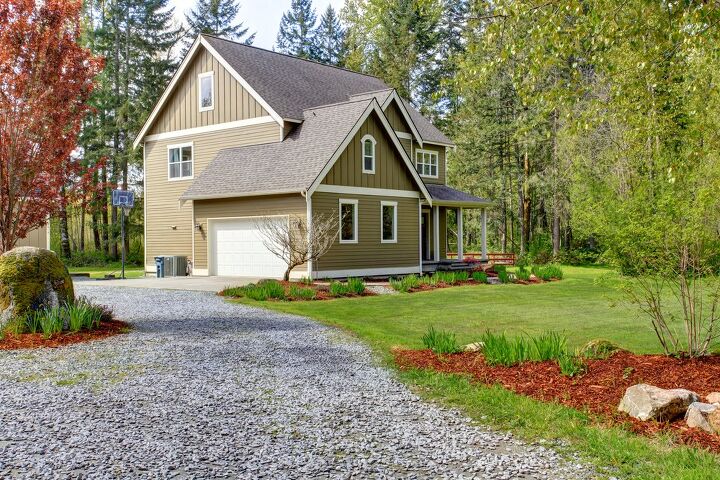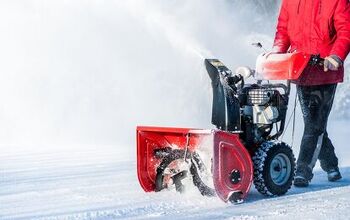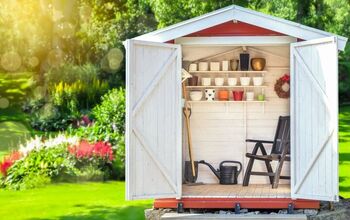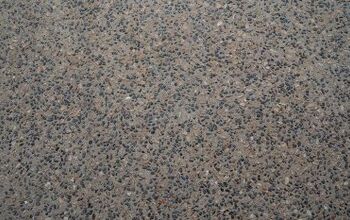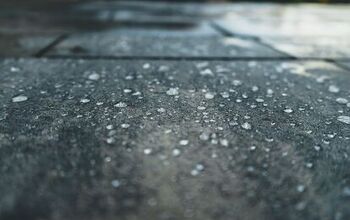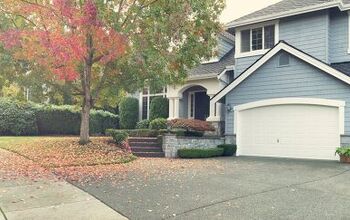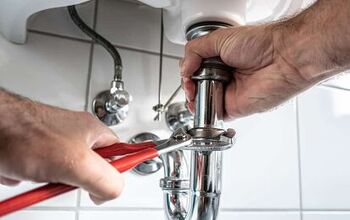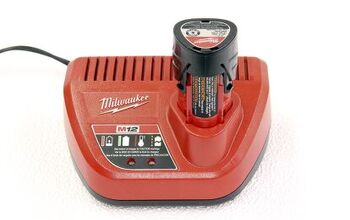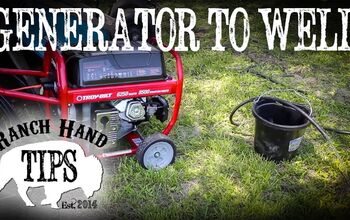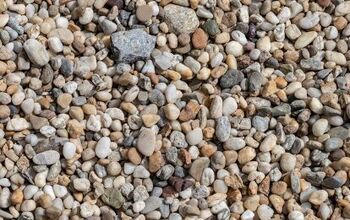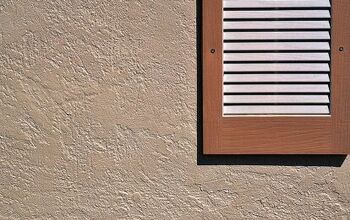Can You Put Driveway Sealer On Gravel? (Find Out Now!)

A gravel driveway that is several years old can begin to look a little sad. Gravel tends to migrate, leaving bare patches or uneven places on your driveway. You can, of course, simply add more gravel to your driveway. However, many people consider applying a driveway sealer on top of their gravel driveway. Is this a viable solution?
You can apply most driveway sealer products to a gravel driveway, but the outcome may be less than satisfactory. The gravel may not provide a suitable base for an asphalt-based driveway sealer. Some epoxy-based driveway sealers can be poured over existing gravel driveways with suitable results.
You probably chose gravel for your driveway for some specific reasons. It may have been the cost that led you to a gravel driveway. However, aesthetics is the biggest reason most people choose gravel for their driveways. In any case, adding a driveway sealer to your gravel drive may not be the solution you are seeking.
Do You Need Asphalt Paving Repair or Patching?
Get free, zero-commitment quotes from pro contractors near you.

What Are the Options for Sealing My Gravel Driveway?
There are two basic options for sealing a gravel driveway. Each of these options has its advantages and disadvantages. You should understand the pros and cons of each type of driveway sealant before you decide.
Hot Asphalt Seal Coat
Adding a hot asphalt seal coat to your gravel driveway is probably the least expensive option you can choose. It has properties that make it a good solution for sealing a gravel driveway. Hot asphalt sealers are applied while hot. This causes the sealant to penetrate between and around the gravel, creating a denser surface.
This penetrating action creates a more durable, thicker surface than other sealing materials. However, unless your gravel driveway is properly prepared, the end result may be less than satisfactory. You may experience a crumbly surface that rapidly deteriorates as it weathers.
Many asphalt contractors recommend that an extra layer of gravel be applied to the hot asphalt seal immediately after it is applied. This layer of gravel helps build a driveway surface that is more resistant to wear and damage than just the asphalt alone.
Cold Asphalt Seal Coat
Cold asphalt seal products can produce almost as good results as hot asphalt sealers. The major difference between these two types of seal coating is the heat required. Cold seal products don’t need to be heated. These products can be applied directly to your gravel driveway. Cold seal driveway sealers are emulsified asphalt that must cure properly before being used. These products contain chemicals that keep the asphalt liquid until they are exposed to air. Over time, these chemicals leave the asphalt allowing it to harden and set.
Cold seal driveway sealers are much more sensitive to preparation and conditions than hot seal products. Cold seals cannot be applied below a certain temperature. The gravel base must also be properly prepared, or problems will occur. For best results, follow the manufacturer’s application instructions closely.
Epoxy-Based Sealants
A relatively new entry into the driveway sealing market is the epoxy-based driveway sealers. These products effectively create a durable driveway surface when properly applied. In practice, the epoxy resin coats and binds the gravel together to form a solid mass.
The epoxy resin is also waterproof. This waterproof element of epoxy resin prevents water from penetrating the gravel, where it can freeze and thaw, creating cracks and potholes. Epoxy resin driveway sealers tend to have a longer lifespan than asphalt-based driveway sealers.
The downsides of epoxy resin sealers are the cost and the need for extensive preparations before applying the epoxy resin. Epoxy resins are more expensive than asphalt sealers. More extensive work is required to prepare the gravel driveway and may even entail setting forms or adding concrete curbs to contain the epoxy resin as it is applied.
How Well Does Applying a Sealant Work on a Gravel Driveway?
Applying a sealant over a gravel driveway can achieve acceptable results. However, suppose you want a long-lasting solution. In that case, the answer is to install a proper hard surface driveway done by a paving contractor.
Overall, applying a driveway sealer to an existing gravel driveway can end up with some serious problems. Unfortunately, these problems often create more maintenance issues and add additional costs to your gravel driveway situation.
- Voids and Spaces – The sealant material you apply to your gravel driveway may not infiltrate the gravel spaces evenly. This can lead to voids and spaces in the driveway, creating many problems. Your driveway may suffer from crumbling, subsistence, or cracks as the voids break down under use.
- Deterioration From Sunlight – Many cheaper sealers, especially cold seal asphalt products, are susceptible to being broken down by sunlight. This can be as minor as color changes that give your driveway a mottled appearance. On the other end of the scale, the sealer may suffer major deterioration and begin to crumble and lose its integrity.
- Structural Problems – If the sealer or the gravel driveway is not properly prepared, the driveway may suffer structural failures. This type of structural failure can lead to large potholes or even driveway sections becoming loose and unstable. This type of damage is often not repairable short of removing the gravel and sealer and starting over.
Applying a driveway sealer to an existing gravel driveway is certainly possible. However, the results won’t equal what a professionally installed permanent driveway will provide. Adding a driveway sealer to an existing gravel driveway is a temporary solution rather than a permanent fix.
What Can I Do to Ensure I Get the Best Results from a Driveway Sealer on my Gravel?
You should do several things that will make the application of a driveway sealer more effective and long-lasting. These tips and tricks will help create a better result if you apply a driveway sealer to your gravel driveway.
- Make sure you have an adequate depth of gravel on your driveway. Applying a driveway sealer to a thin layer of gravel will lead to premature cracking.
- Repair any drainage problems on your driveway. If you have areas where water washes across your driveway or stands after rain, these problems should be addressed before applying a driveway sealer to the gravel.
- Areas where your gravel tends to migrate quickly need attention. You may need to add curbs or other retaining features to these areas to keep the gravel in place. This may be a significant problem where the gravel driveway is on a slope.
Proper preparation of your gravel driveway before adding a driveway sealant will give the sealed driveway a longer life. A little work upfront can forestall bigger problems down the road.
Do You Need Asphalt Paving Repair or Patching?
Get free, zero-commitment quotes from pro contractors near you.

Sealing Your Gravel Driveway
Sealing your gravel driveway may be a viable solution to keeping the gravel in place and functional. However, there are the downsides of cost and durability to consider. Whichever option you consider, a little preparation and knowledge can lead you to a better decision.

Dennis is a retired firefighter with an extensive background in construction, home improvement, and remodeling. He worked in the trades part-time while serving as an active firefighter. On his retirement, he started a remodeling and home repair business, which he ran for several years.
More by Dennis Howard



